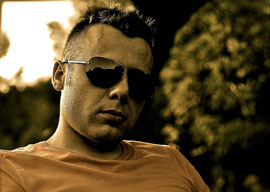
April 03, 2012

Lt. William Calley
I”m as guilty of succumbing to the Bubba Effect as anyone else who mixes politics and pixels all day. (OK, maybe more so: Cognizant of her numerous flaws, I nevertheless wear custom Keds with Palin’s smiling face on them around downtown Toronto just to annoy people.)
I tell myself this impulse is motivated by noble instincts of fair play and decency, but we”ve all seen this sort of tribalism turn corrosive and even deadly. (See: Jury, O. J. Simpson.)
And what if the Bubba Effect is hardwired? If an eminence as supposedly evolved as Stanley Fish can freely admit in The New York Times that he considers acting fairly to be “a weak virtue” and that he refuses to apologize for siding with his liberal “tribal obligations” when “contested points of view” are at stake, then demanding the average citizen override those same urges is asking too much.
While it has yet to manifest itself too widely in the case of the Trayvon Martin shooting, the Bubba Effect can be seen all around us, almost every day. What I”d call the Calley Effect is superficially similar, but sadly rare.
In How We Got Here: The ‘70s, David Frum details the extraordinarily bipartisan reaction to Lt. William Calley’s conviction on twenty-two counts of murder after his platoon massacred hundreds of women, children, and old men in My Lai in 1968.
Frum writes:
My Lai is remembered as a turning point in the [Vietnam] war, and indeed it was, but not in the way people usually think. In the twenty-four hours after the military court declared Calley’s guilt, the White House received more than five thousand telegrams and fifteen hundred phone calls. The messages ran 100:1 in Calley’s favor.
A record called “The Battle Hymn of Lt. Calley“ sold 200,000 copies within days of his conviction. Congressmen and governors of both parties, from Connecticut to Florida, joined the chorus condemning the verdict. One expects to learn that “George Wallace visited Calley in the Fort Benning stockade” but not that “Governor Jimmy Carter proclaimed “American Fighting Man’s Day,” and urged Georgia motorists to drive all week with headlights on.” Amazingly, both things happened.
Frum continues:
On this one issue, populist hawks and campus doves could agree. Calley was…”just another victim of a war nobody wanted to fight.”…Populist hawks similarly saw Calley as an ordinary American boy thrust into a dangerous situation in a war the elites started, bungled, and then wanted to bug out of….
The Calley Effect repeated itself in 2006, when Hugh Thompson, Jr. died. Moving online obituaries praising the “hero of My Lai” popped up on blogs left and right, recounting Thompson’s attempt to prevent more murders by landing his helicopter between Calley’s company and other villagers, then helping evacuate them.
It was a kind of online Christmas truce during the eight-year Bush (“is Hitler”) Administration, and just as brief. The New American Civil War resumed in a day or two, and so it continues, registered trademark and all.
The danger right now is that well-meaning people will try to make Zimmerman into some kind of Great White/Hispanic Hope/Saint to counteract the saint-making surrounding Trayvon, only to have this image destroyed depending upon new revelations. They’ll look and feel stupid, and the left will never let anyone hear the end of it.
We can’t seem to just tell the truth about who people are, partially because the liberal media puts us on the defensive almost constantly.
When you find yourself feeling nostalgic for the My Lai Massacre, it’s hard not to conclude that the United States is in the deepest of trouble.